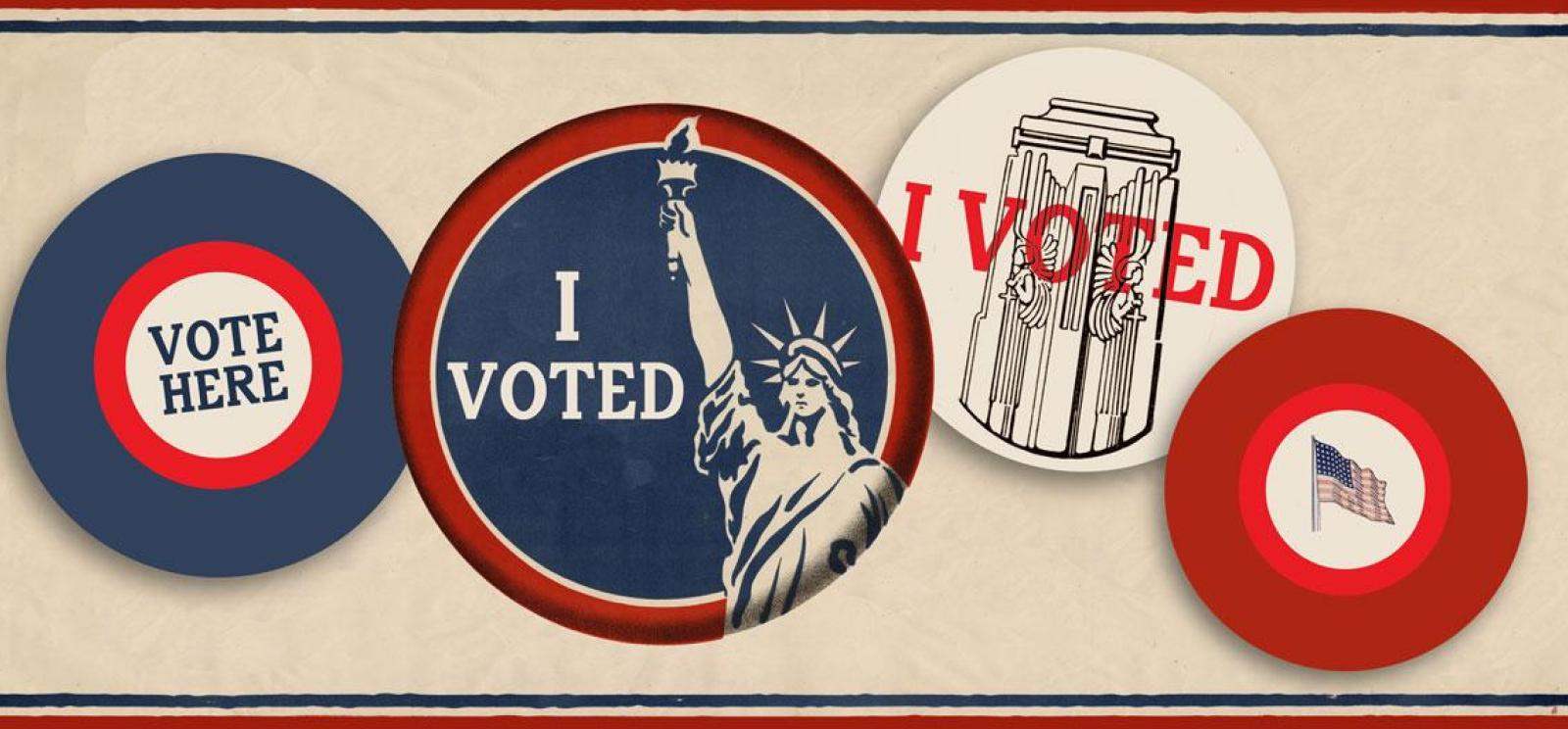Tuesday, April 6, 2021 polls are open at the National WWI Museum and Memorial from 6 a.m. - 7 p.m.
What to know for Tuesday, April 6, 2021 at the National WWI Museum and Memorial:
- Polls are open from 6 a.m. – 7 p.m.
- The Museum and Memorial will serve as a polling location for Ward 1, Precinct 6 residents.
- According to the Kansas City Board of Elections, if you are a registered voter AND a resident of Kansas City, Mo. within Jackson County, you may vote at the Museum and Memorial. Click here to find other voting locations within the city. Contact 816.842.4820 or kceb@kceb.org with questions.
- All voters may park in the Museum and Memorial’s U-Shaped Drive, West Visitor’s Lot and Southeast Lawn. ADA accessible parking spots are available at the top of the Drive.
- Enter the Museum and Memorial through the main entrance’s bronze doors and take a right to the Auditorium Lobby where you will vote. Museum staff and volunteers will be available to assist you.
- You must bring a form of approved voter identification.
For more information on voting, please visit kceb.org/voters/faq
The Museum is open from 10 a.m. - 5 p.m. All voters wearing an “I Voted” sticker will receive half price general admission on April 6. The Café will be open for dining from 11 a.m. – 2 p.m.
In partnership with KC Board of Elections.
Why is Voting Significant to the National WWI Museum and Memorial?
Officially joining the war in April 1917 under President Woodrow Wilson’s promise to “make the world safe for democracy,” the United States faced large questions concerning what that pledge meant both abroad and at home. Nearly two years after the Armistice was signed on Nov. 11, 1918, Americans continued to grapple with questions on democracy and their place in a vastly changed world as they voted in the 1920 presidential election.
Although the guns had gone silent on many fronts, WWI and its enduring legacy continued to reverberate into the new decade. For the first time, many women would cast their ballots in a national election after the passage of the 19th Amendment which was made possible in part due to women’s contributions during the war. The nation was also healing from the 1918-1919 Influenza Pandemic, which compounded many of the losses suffered during the war.
Now, more than 100 years later, we can all continue to participate in democracy by exercising our right to vote.
